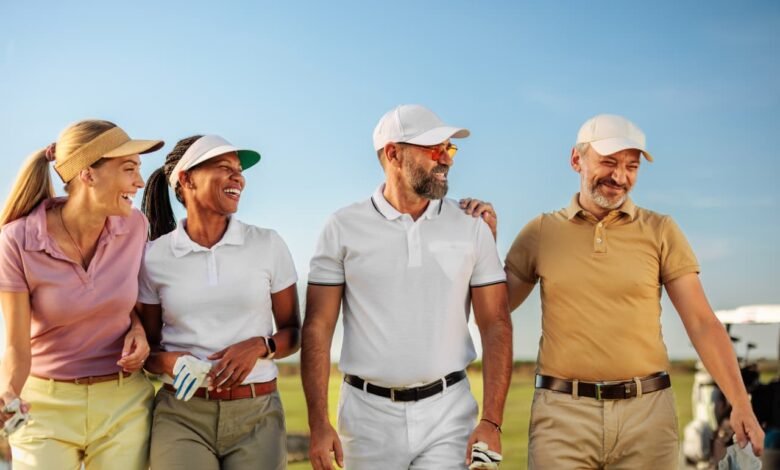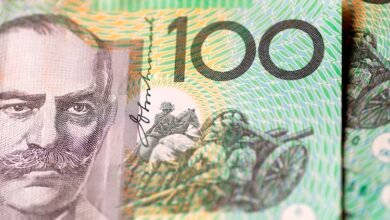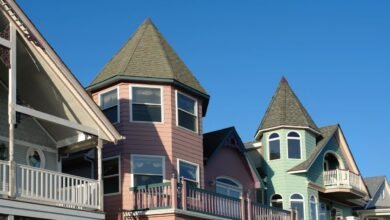Is golf an elitist sport? The Biden-Trump debate leaves some asking the question.

Let’s face it: There was one clear loser in Thursday night’s presidential debate. But I’m not referring to President Joe Biden, who many faulted for delivering a lackluster performance. Or to former President Donald Trump, who faced questions concerning the accuracy of his statements.
Instead, I’m talking about something else entirely: the sport of golf.
As you may recall, the two candidates had a testy exchange near the debate’s end about who played the game better.
“I’ll remind you I got my handicap when I was vice president down to a six,” Biden said.
“That’s the biggest lie — that he’s a six handicap, of all,” Trump said, during his reply.
“I was an eight handicap — eight,” Biden added.
But as the 78-year-old Trump and the 81-year-old Biden talked about their handicaps, championship wins and ability to carry their own bags, some saw it as a potent reminder that golf is a sport dominated by exactly these types of players.
Namely, old white men.
“Last night, a nation turned its watchful eyes toward its television screens and witnessed a type of ritual usually only held behind closed doors,” columnist Charlie Warzel wrote in the Atlantic.
“Eager voters finally got a glimpse into the smoke-filled rooms that line the halls of power— the places where world affairs are settled and where great men may speak freely,” he added. “At last, the electorate saw something real: two old, powerful men petulantly blustering about their golf games.”
At 60, I’m approaching old-white-man territory myself. But I’ll also say I’ve never quite seen the appeal of golf, even after having once lived in the golf-crazed state of Florida. I have tended to view it as an elitist endeavor for the country-club set: Think the Ted Knight character in “Caddyshack,” who comically clings to the idea that golf courses are sanctums for the privileged.
I’m hardly alone in such a view. Even those who love the sport will call it elitist.
“Absolutely it is,” said Cheryl Gentry, a New York-based event manager who has played the game for years. As a Black woman, Gentry added that she has experienced some less-than-pleasant situations on the course where her presence seemed to ruffle some feathers or at least attract notice.
Industry statistics don’t paint a picture of a sport that might be called especially inclusive when it comes to minorities or those of lesser financial means.
Just 22% of golfers are people of color and 42% have household incomes of $100,000-plus, according to the National Golf Foundation (the figures represent golfers who play on traditional green-grass courses, as opposed to driving ranges or other off-course platforms).
Related (from 2017): Playing golf has gone the way of the three-martini lunch — Trump being the exception
Part of the issue, Gentry and others note, is that golf is indeed expensive to play. Think greens fees that can surpass $100 on private courses and annual club memberships that can run well into the five figures (and let’s not forget those initiation fees that can top six figures).
Then, there’s equipment: A basic set of clubs can set you back $500 easily, but the sky’s the limit. Gentry laments the fact that even a good set of balls can cost $20 for three — and there’s always a good chance you’ll lose one or two on the course.
The National Golf Foundation points out that there are still a lot of golfers in that under-$100,000 income group. Plus, it notes that 75% of the 16,000 courses in the U.S. are public and have an average fee of $37. And the foundation says the number of female and non-white participants is growing.
“Recreational golf is evolving toward demographics more reflective of the American population,” said Erik Matuszewski, the foundation’s editorial director.
Image problem
So perhaps there’s a case to be made for golf. At the same time, the image problem persists — and the presidential-debate moment only served to reinforce perceptions.
In a 2020 GQ profile, champion golfer Brooks Koepka complained that the sport “has always had this persona of the triple-pleated khaki pants, the button-up shirt, very country-club atmosphere, where it doesn’t always have to be that way.”
Others have lamented that golf failed to capitalize on its Tiger Woods moment — meaning it didn’t take full advantage of the fact a non-white player came to dominate the sport, creating an opportunity to introduce many minorities to it. There are programs designed to do just that, but the roadblocks seem to remain. To wit: At the 2023 U.S. Open, none of the 156 players were known to be Black.
Gentry and others told me it will always be a challenge for the sport. Again, they note it’s hard to get past the expense — not just for disadvantaged minorities but frankly almost anyone who considers themselves middle-class.
I admit I sometimes think I’d like to give golf a try — after all, 26.6 million Americans do play it, according to the National Golf Foundation. But I’m far more likely to start playing pickleball, which is now the fastest-growing sport in the country. And probably for good reason: It’s one that requires little investment in terms of equipment — and you can play it in your driveway for free.
I wonder how Biden and Trump might fare on the pickleball court? Perhaps they can discuss that at a future debate.
Related: Biden, Trump campaigns both report millions in donations after debate




